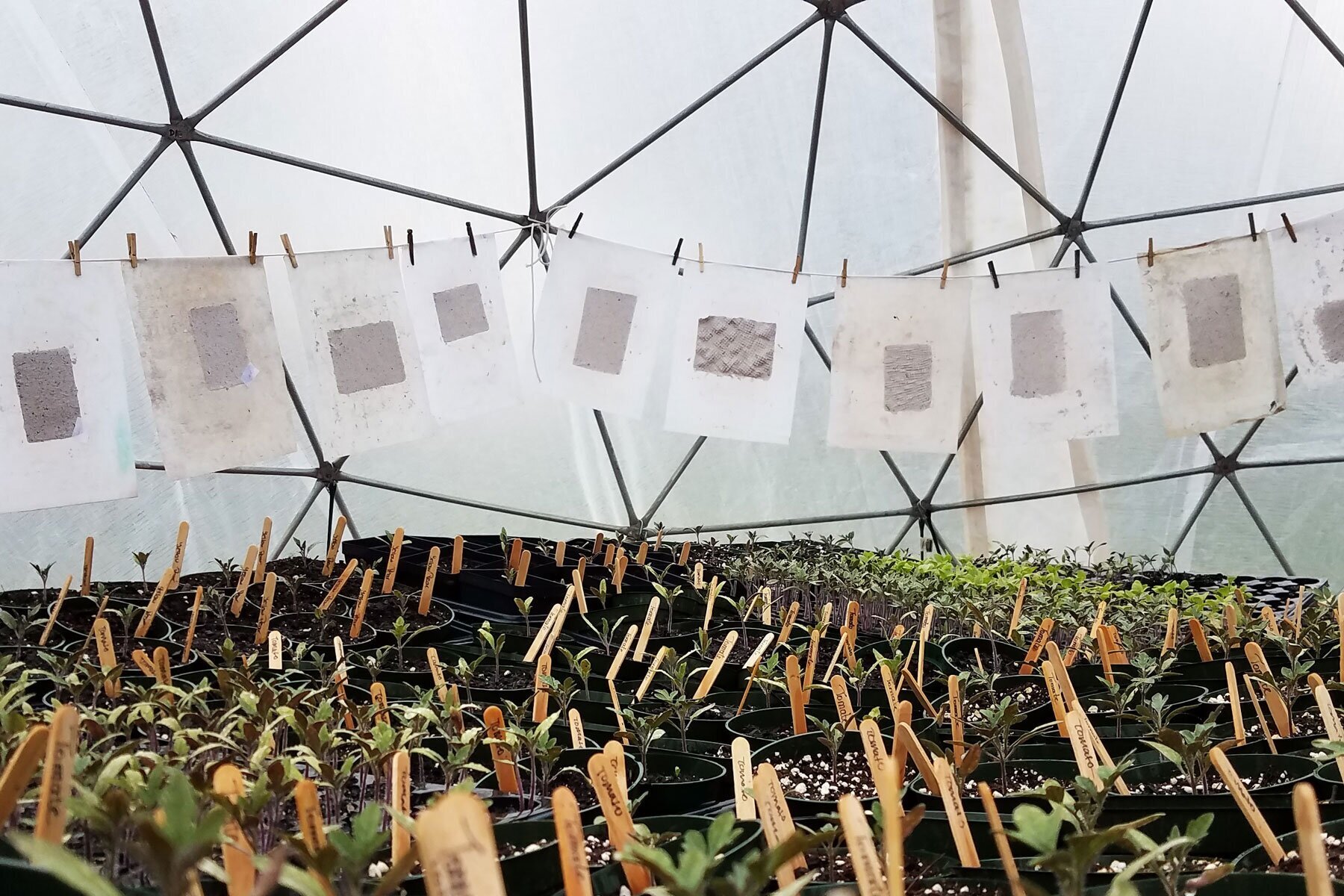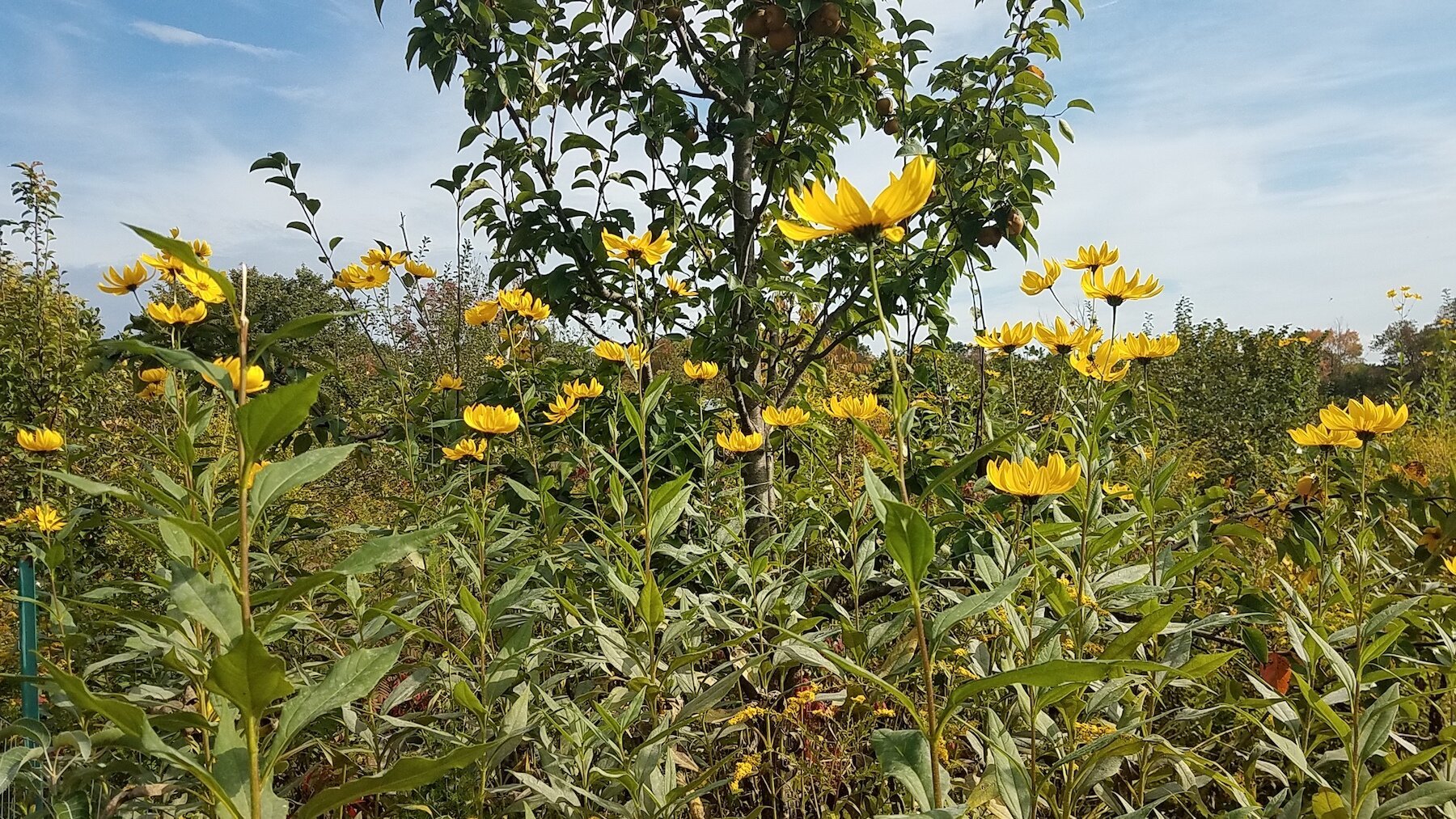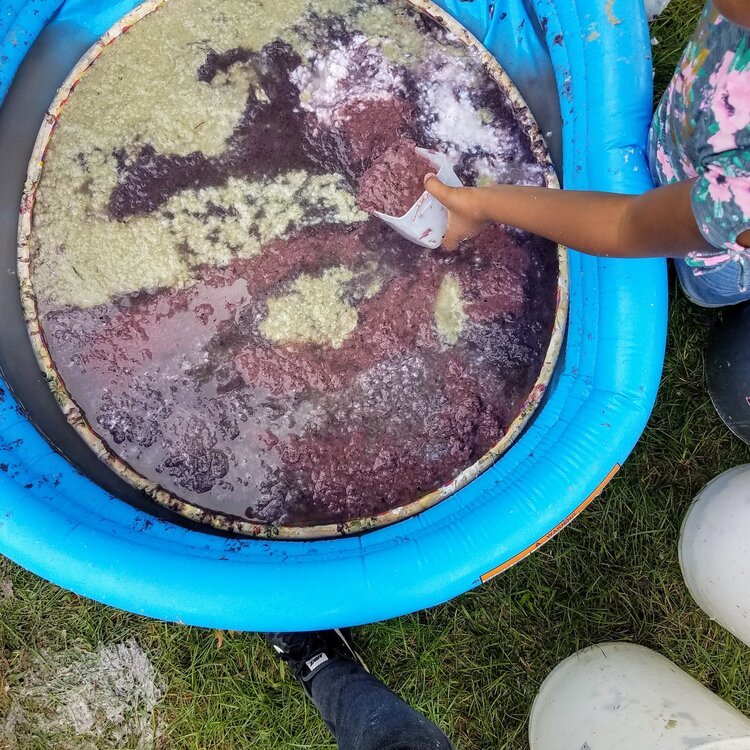a creative place-making, community papermaking Prototype.
This page archives the project, which asked: how might hand papermaking create positive change for Pawtucket, Rhode Island?
Pawtucket Paper envisioned papermaking as a catalyst to grow intersecting movements in arts education, climate justice, and a sustainable future.
2017 - Interesting Beginnings
I’m May Babcock, a papermaking artist and founder of Paperslurry.com, a blog dedicated to sharing and expanding the art and craft of hand papermaking around the world.
Families and children from Galego Court in Pawtucket, RI started learning papermaking from plants during after school programs at the SCLT Galego Community Farm. Participants were mainly families living at Galego Court, the Weeden/Barton neighborhood, and Pawtucket residents.
Eventually, I offered a ‘more official’ arts, craft, and plant science education project—Pawtucket Paper. We dug up and removed Japanese Knotweed (an invasive plant in the garden) and other garden weeds such as mugwort, garlic mustard, and bird vetch. Then we turned the plant fiber into paper. The papers were used for place cards at a SCLT 2017 fundraiser dinner, and donor gifts in 2018.
This wouldn’t have been possible without:
a RISCA project grant
collaboration with the Southside Community Land Trust (SCLT) Galego Community Farm
collaboration with the Pawtucket Housing Authority.
volunteer effort
Since then, various free public events and workshops were held, including a fall harvest festival, volunteer days, and even a collaborative hula-hoop ‘pulp painting’ event.
2018 - A Nudge Forward from National Arts Strategies
In 2018, I was awarded a Creative Community Fellowship, a program by D.C. based National Arts Strategies that brings together cultural trailblazers for six months, to learn life-changing skills and to see dreams become reality — and drive transformation through arts and culture.
2019 - A Prototype Space
From August 2019 to March 2020, this project idea and its various programs were piloted in a brick-and-mortar location in downtown Pawtucket Rhode Island, thanks to a generous grant from NAS and Barr Foundation.
As a result, we held: 4 Community listening sessions, 12 weeks of Open Studio Sessions for free use of the papermaking studio for a limited test group of community members, and:
Co-design sessions - 3 co-design sessions with SCLT Summer Youth Staff who learned the design thinking process, and collaborated with each other to co-design and make handmade paper notebooks from the Japanese Knotweed they had been removing from Galego Community Farm. They made the paper, brainstormed product ideas, voted to make notebooks, and hand-bound a set of prototypes.
Partnership Events - 4 public-facing partnership events in collaboration with local environmental groups, grass-roots arts organizations, neighborhood businesses, and a culinary job training program for youth. Events included Japanese Knotweed papermaking at the Blackstone River Watershed Council, a free papermaking plus dinner event at Harvest Kitchen, hula-hoop papermaking for the Pawtucket Arts Festival, and a free make ‘n take papermaking table at East Bay Bike Way Art Day.
Fall Harvest Festival - We demonstrated papermaking from garden plants at the Galego Community Farm annual fall festival, held for residents at Galego Court. Festival attendees get their hands wet, and make their own sheet of paper and stenciled pulp painting to take home. ‘Pulp painting’ is an artistic technique where one paints with different colored pulps, making paintings that are 100% paper.
Workshops - 3 hands-on papermaking workshops for creatives in the greater New England region. Students had the opportunity to take hand papermaking workshops, including recycled papermaking and vegetable papyrus.
2020 and COVID-19
Due to the COVID-19 pandemic, the prototype phase was ended to prioritize health.
Now: A Blueprint for Your Community
Countless hours of research, planning, conversation, and testing of activities has happened (definitely a labor of love).
If you are interested in using this prototype studio structure for leveraging the power of hand papermaking to create positive change in your community, please do! And please link to this webpage.
Supporters
Pawtucket Paper has been generously supported by dedicated and passionate volunteers, and the following collaborating partners: Rhode Island State Council on the Arts, Southside Community Land Trust, National Arts Strategies, Pawtucket Housing Authority, Harvest Kitchen, East Bay Bike Way Art Day, The Blackstone River Valley National Heritage Corridor, Blackstone River Watershed Council, John, Rick, & Fritz, and Top Shelf Vintage.













